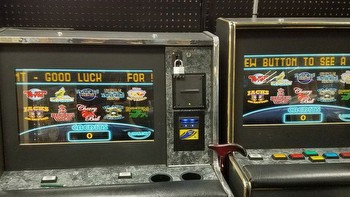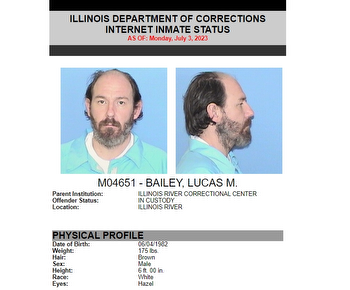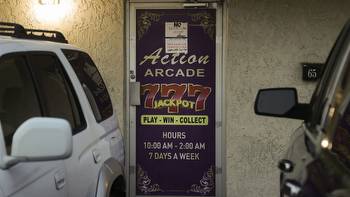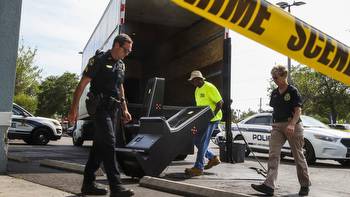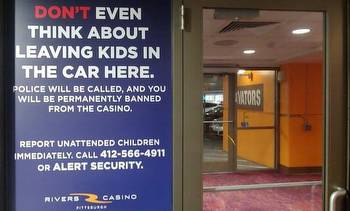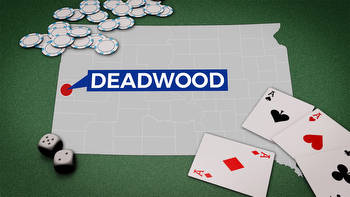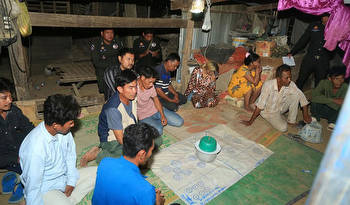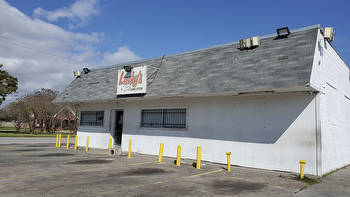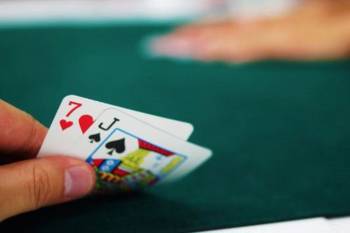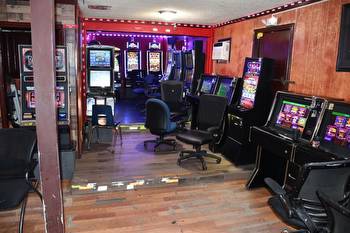Internet cafes & gambling under scrutiny

Sheriff Al Nienhuis presented to the Board of County Commissioners on May 25, 2021 an item on area internet cafes and “simulated Gambling Devices and Internet Cafes.” Defined as an “educational presentation,” no ordinances have been developed, and there was no vote on the subject. The matter at this point is a dead issue, unless the board decides to resurrect it at a later time.
Establishments known as “Internet Game Rooms,” sometimes called “Fish Games” have come under fire in recent years. In 2018, 70% of residents indicated that they did not want an expansion of casino gambling, and the business model of some of these establishments runs afoul of Florida state law when they provide large cash payouts. The businesses that operate within the limits of the law offer payouts in the form of merchandise not valued over $6.
Nienhuis showed several photos from recent investigations, which show that these cafes are designed to look like casinos, rather than an arcade or game room. Sheriff’s Office deputies have conducted undercover visits, finding that prizes consist of cash or cash equivalents, and have seized thousands of dollars from these establishments which do not legally operate as casinos.
Nienhuis displayed a photo of a game table where several hundreds of dollars were shown in 100-dollar bills lying underneath, yet in plain sight. He explained that the likely reason for this to occur is that the employees — usually young adults in their 20s — suspect law enforcement is on the premises, and they immediately empty their pockets, shedding the illegal cash.
Tracking down the owner of the business is usually difficult. Neinhuis reported that employees usually deny knowing who the owner is, and when asked how they are paid their wages, employees will describe a system of self-service payment, where their daily wages come in the form of cash from the day’s proceeds.
Aside from the business itself practicing illegal gambling, the large amount of cash flowing within is attractive to those willing to engage in armed robbery. These consequential crimes concern law enforcement, because it is suspected that they are largely unreported.
Commissioner Steve Champion stated that he had been made aware of hundreds of local citizens who approve of and visit the establishments. Champion posited that other counties have put ordinances in place that allow the game rooms to operate legally. Nienhuis was unaware of which counties had regulations in place. “I don’t think there is a way to regulate them with the business model that they have now, that is not unlawful by state law.”
Following Nienhuis’ presentation and brief discussion with the board, Chairman John Allocco called for citizens’ comments, for which he held several comment sheets submitted prior to the agenda item.
Kelly Mathis was the first to speak on behalf of the Hernando County Game Room Association in favor of regulation for the game rooms, and has met with Nienhuis to discuss the possibility. Mathis told the board that he does not believe that the photos shown in Nienhuis’ presentation were representative of most game rooms.
Since the game rooms are for adults and seniors, Mathis disagrees that the games resemble casino gambling machines. “These are game rooms for adults and senior citizens, they’re not ‘Chuck E Cheese’ games, adults don’t like that… These are computer games.”
Mathis stated that Florida has numerous exceptions to gambling laws, such as the state lottery and certain casinos. He went on to say that statute 546.10 governs skill games such as those at Chuck E Cheese. Another law (849.094) governs sweepstakes games, which according to Mathis are the type offered at the game rooms in question, and allows for cash payouts.
Answering a question by Commissioner Jeff Holcomb, Mathis reported that to date, Hernando County has not successfully convicted anyone for operating an illegal game room. Some gaming establishment owners have voluntarily closed to avoid future law enforcement contact and arrests of themselves and staff. An attorney, Mathis explained that sometimes, it doesn’t make economic sense for an establishment to reopen after closure.
Nienhuis remarked later in the meeting that most people arrested in connection with the game rooms are usually charged with misdemeanors, and are likely to enter “Pretrial Intervention,” which is a diversionary program akin to probation.
Champion remarked that the applicable law “is very gray,” and while reading the law at the dais, added that the law allows for cash payouts under $5000.
Both Champion and Commissioner Beth Narverud have experience with cash businesses, and agreed that many other types of businesses operate on a cash basis, and are at the same risk of robbery.
Kathy Letishoca spoke to the board on behalf of her 85-year-old mother, who enjoys visiting the cafes. “This is a source of entertainment, and the source of establishment of a community for her.”
Several others, including former employees and owners of the game rooms spoke in support of them, reminding the board that the ones located in the city of Brooksville pay city tax as well as county taxes. Others cited the necessary socialization the rooms provide to those who would be otherwise isolated.











